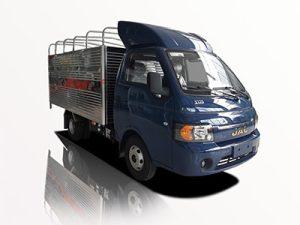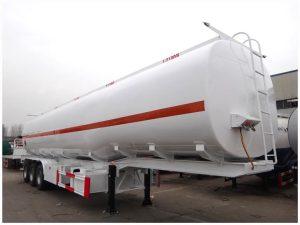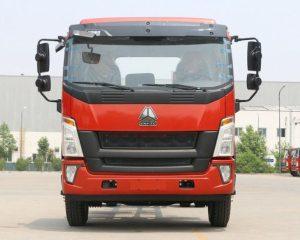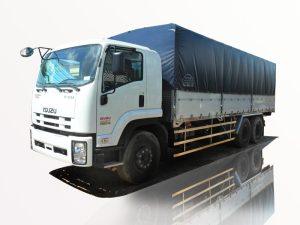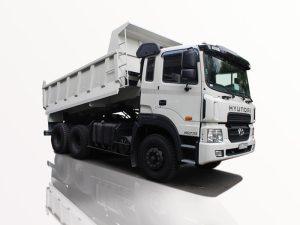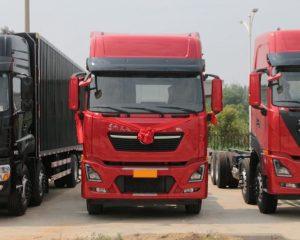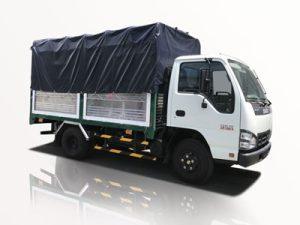Monday to Saturday - 8:00 -17:30
The Ultimate Guide to Vacuum Cleaner Trucks: Efficiency, Benefits, and Uses
Vacuum cleaner trucks are an essential part of modern cleaning technology, combining powerful suction capabilities with mobility to tackle a variety of cleaning tasks in different environments. This article delves into the intricate details of vacuum cleaner trucks, exploring their mechanisms, benefits, and practical applications, and providing tips for maximizing their use.
What is a Vacuum Cleaner Truck?
A vacuum cleaner truck is a specialized vehicle equipped with a powerful vacuum system designed to extract debris, dust, and liquid waste from both indoor and outdoor environments. These trucks are commonly used in municipal cleaning, construction sites, and large warehouses. Unlike traditional vacuum cleaners, vacuum cleaner trucks can handle larger volumes and heavier materials, making them ideal for various applications.
History of Vacuum Cleaner Trucks
The concept of vacuum cleaner trucks originated in the late 20th century as the need for efficient cleanup processes in industrial and municipal settings grew. Early models were bulky and limited in functionality. However, advancements in technology over the years have led to the development of more compact, efficient, and user-friendly versions.
How Do Vacuum Cleaner Trucks Work?
Vacuum cleaner trucks operate using a powerful motor that creates suction. The system can vary based on the truck’s design and purpose, but typically includes the following components:
- Suction Hose: A long, flexible hose connected to the main tank, allowing workers to reach areas that are difficult to access.
- Debris Tank: A large storage compartment where collected waste is held until it can be disposed of.
- Filters: Systems designed to capture dust particles and prevent them from escaping back into the air.
- Power Source: Typically powered by diesel or gasoline engines, although electric models are becoming more common.
Types of Vacuum Cleaner Trucks
There are several types of vacuum cleaner trucks available, each designed for specific cleaning tasks. Understanding these types can help you choose the right one for your needs.
1. Street Sweepers
Street sweeper trucks are equipped with large suction capabilities and rotating brushes to clean streets, parking lots, and sidewalks. They efficiently collect debris and litter, making urban areas cleaner and more aesthetically pleasing.
2. Liquid Waste Vacuum Trucks
These trucks are specifically designed for efficient removal of liquid waste from various sites, including septic systems, grease traps, and wastewater treatment facilities. They typically feature tanks that can withstand corrosive materials.
3. Industrial Vacuum Trucks
Industrial vacuum trucks can handle heavy-duty cleaning tasks in factories, construction sites, and other industrial locations. They can suction a wide range of materials, including hazardous waste, slurry, and debris.
4. Portable Vacuum Trucks
These are smaller, more compact models suitable for residential or light commercial use. They can easily maneuver tight spaces and are often used for detailed cleaning in homes or offices.
The Benefits of Using Vacuum Cleaner Trucks
Utilizing vacuum cleaner trucks offers numerous benefits across various industries. Here are some compelling reasons to invest in one:
1. Efficiency
Vacuum cleaner trucks can complete cleaning tasks much faster than traditional methods, thanks to their powerful suction and large storage tanks.
2. Versatility
These trucks can be used for multiple applications, including street cleaning, waste removal, and industrial cleaning, making them a versatile investment for many businesses.
3. Health Compliance
Vacuum cleaner trucks with advanced filtration systems help maintain indoor air quality and reduce health risks associated with dust and debris exposure.
4. Cost-Effective
Although initial purchasing costs may be high, the efficiency and versatility of vacuum cleaner trucks can lead to long-term savings in labor and maintenance expenses.
5. Environmental Benefits
Using vacuum cleaner trucks reduces the need for harmful cleaning agents and helps prevent pollution by effectively collecting debris and waste.
How to Choose the Right Vacuum Cleaner Truck
Selecting the appropriate vacuum cleaner truck depends on several factors, including your specific needs, budget, and operational environment. Here are some tips for making the right choice:
1. Define Your Needs
Determine the primary tasks you want the vacuum truck to perform. For instance, if you require street cleaning, focus on models designed for that purpose.
2. Consider the Size
The truck’s size should align with your usage requirements and environmental constraints. Ensure it can navigate the spaces you’ll be cleaning effectively.
3. Evaluate the Power Source
Decide whether you want a diesel, gasoline, or electric model based on your budget and environmental preferences.
4. Examine the Features
Look for essential features such as hose length, filtration system quality, and ease of use to ensure maximum efficiency.
Practical Examples of Using Vacuum Cleaner Trucks
Vacuum cleaner trucks have various applications in real-world settings. Here are a few practical examples:
1. Municipal Street Cleaning
City governments often use street vacuum trucks to keep public roads clean and free from debris. For example, a city may schedule regular street cleaning every week using a vacuum truck equipped with brushes and suction capabilities to effectively remove leaves, dirt, and litter.
2. Construction Site Cleanup
Construction companies rely on industrial vacuum trucks to clear debris, dust, and hazardous waste quickly and efficiently. For instance, after a major construction project, a contractor can deploy a vacuum truck to remove leftover materials, ensuring the site remains safe and compliant with regulations.
3. Food Industry Waste Management
Restaurants and food production facilities often use vacuum trucks to safely remove grease and waste, preventing clogs and keeping systems running smoothly. For instance, a food processing plant may schedule regular service to ensure their grease traps are emptied promptly.
4. Flood Cleanup
After flooding, specialized vacuum trucks equipped to handle liquid waste can quickly remove excess water and debris, restoring businesses and homes to safe conditions.
Maintenance Tips for Vacuum Cleaner Trucks
To ensure longevity and optimal performance, regular maintenance of vacuum cleaner trucks is essential. Here are some tips:
1. Regular Inspections
Conduct routine inspections of the filters, hoses, and tanks to prevent clogs and maintain suction efficiency.
2. Clean Filters and Tanks
Regularly clean or replace filters to ensure they function correctly. Empty the debris tank frequently to avoid overflow and maintain performance.
3. Check Fluid Levels
Regularly monitor fluid levels for both diesel or gasoline and any hydraulic liquids used in the truck’s operation.
4. Schedule Professional Maintenance
Follow the manufacturer’s recommended maintenance schedule and consult professionals for complex repairs and services.
Innovations in Vacuum Cleaner Truck Technology
The vacuum cleaner truck industry continues to evolve with technological advancements. Here are a few innovations to look out for:
1. Eco-Friendly Engines
With growing environmental concerns, many manufacturers are developing vacuum trucks with eco-friendly engines that reduce emissions.
2. Smart Technology
Many modern vacuum trucks now offer smart technology features, such as remote monitoring, GPS tracking, and automated reporting systems, enhancing overall efficiency.
3. Enhanced Filtration Systems
Advanced filtration technologies, including HEPA filters, are being integrated into vacuum trucks for better air quality management during operation.
Frequently Asked Questions (FAQ)
1. How much does a vacuum cleaner truck cost?
The price of vacuum cleaner trucks can range from $50,000 to over $200,000, depending on the model, features, and customization options.
2. What are the main applications of vacuum cleaner trucks?
Vacuum cleaner trucks are commonly used for street cleaning, industrial waste removal, liquid waste management, and construction site cleanup.
3. Are vacuum cleaner trucks environmentally friendly?
Many modern vacuum trucks are designed with eco-friendly features, including low-emission engines and advanced filtration systems that minimize pollution.
4. Can I rent a vacuum cleaner truck?
Yes, many companies offer vacuum cleaner truck rentals for short-term projects or specific cleaning tasks, providing flexibility for various needs.
5. How do I maintain a vacuum cleaner truck?
Regular maintenance includes inspecting filters and hoses, cleaning tanks, checking fluid levels, and scheduling professional servicing as needed.
6. What is the difference between a vacuum cleaner truck and a traditional vacuum cleaner?
Vacuum cleaner trucks are designed for large-scale operations with powerful suction, capable of handling heavy materials and waste, whereas traditional vacuum cleaners are suited for residential and light commercial use.



